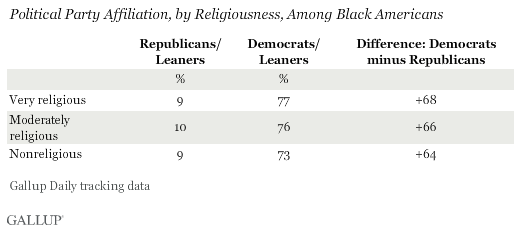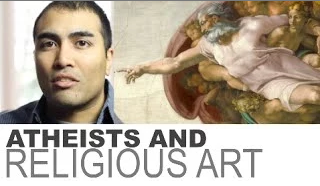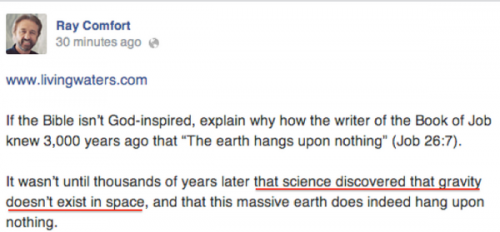Hemant Mehta's Blog, page 1966
July 28, 2014
Appeals Court Rejects American Atheists’ Lawsuit Against Giant Cross Display in 9/11 Museum
More than a year ago, U.S. District Judge Deborah Batts tossed out American Atheists’ lawsuit against the National September 11 Memorial & Museum and its display of a 17-foot-tall steel beam cross.
If you need some background, AA had sued because they felt the museum was supposed to honor the victims of the tragedy — and we all know atheists, non-Christians, and Christians died in the tragedy.
When steel beams fell that day, a couple of them criss-crossed, as you might expect, and some Christians took that to mean a sign from God. (Why God didn’t intervene earlier that day has yet to be determined). If a church wanted to display that particular cross, American Atheists said, they had every right to do so, but for a historical museum to have a display with the cross suggested to them that Christian victims were being treated as different from (and better than) other victims. AA offered to donate a symbol of their own for inclusion in the memorial, but the museum curators rejected their donation because it wasn’t a historical artifact (which is true).
Batts wrote that the cross and its accompanying panels of text “helps demonstrate how those at ground zero coped with the devastation they witnessed during the rescue and recovery effort.” She called its purpose “historical and secular” and noted that it will be housed at the museum in the “Finding Meaning at Ground Zero” section with placards explaining its meaning and the reason for its inclusion. It also will be surrounded by secular artifacts.
…
“No reasonable observer would view the artifact as endorsing Christianity,” the judge said. She added that the museum’s creators “have not advanced religion impermissibly, and the cross does not create excessive entanglement between the state and religion.” She said the plaintiffs also failed to allege any form of intentional discrimination or cite any adverse or unequal treatment on the basis of their religious beliefs.
Batts was using the same argument other judges have used to allow Christians to display nativity scenes on government property — by itself, it’s not allowed, but if its surrounded by secular displays (reindeer, Santa, etc), it’s usually permissible.
The problem with the ruling in American Atheists’ view was that it still gave preference to a symbol some Christians found meaning in after 9/11. Yes, it’s part of history, but other, non-Christian groups found meaning and symbolism in other places and relics of their memories were not being displayed in the museum.
So American Atheists appealed the ruling in August, saying that…
The essential problem with the Cross is that it alienates non Christians seeking to commemorate the dead, wounded and other affected persons. The Cross also alienates those who wish to learn about events at the National September 11 Memorial & Museum. The 17-foot tall Christian Cross is one of the largest objects in the Memorial. It dominates all other religious objects. The inclusion of information to accompany the Cross does not change the essential facts that in the present case the government is sponsoring and erecting an indisputably religious symbol which advances one religion above all other religions, and non-religion as well.
Today, that appeal was rejected by the U.S. Court of Appeals for the Second Circuit, which says there’s no Establishment Clause violation taking place here and can American Atheists please just go away.
Judge Reena Raggi, writing for the majority, explains that the lower courts had it right all along. This isn’t about religion; it’s about accurately depicting history. Even if the Cross is a Christian symbol, it’s not meant to proselytize or demean non-Christians.
… American Atheists do not dispute that The Cross at Ground Zero is a genuine historical artifact of recovery and healing efforts after the September 11 attacks. Rather, they contend that appellees’ actual purpose must be religious because the cross’s particular historical significance derives from its religious symbolism and devotional use. In short, because the historical significance of this particular column and cross‐beam is as a tangible illustration of the role faith played for many persons in the aftermath of the September 11 attacks, appellees’ actual purpose in displaying the artifact must be religious rather than secular. We reject this reasoning.
Raggi added that the Supreme Court has long held that an “accurate account of human history frequently requires reference to religion” and that any reasonable observer seeing the Cross in the museum would know it was a symbol, albeit a religious one, “for any persons seeking hope and comfort” after 9/11, not Museum officials giving a middle finger to atheists.
While American Atheists still has options left (like asking the full Appeals Court to reconsider the decision or taking their chances with the Supreme Court), none of them have any reasonable chance of succeeding.
Maybe that’s for the best. This was an unpopular lawsuit, even for many atheists, and getting this story out of the headlines is probably best for everyone involved. AA can go back to focusing on its new TV channel instead of fighting a battle that very few people wanted them to tackle.
(via Daily Caller. Large portions of this article were posted earlier.)
A Quiverfull Mother Rejected Her Faith, Got a Divorce, and Wrote All About It in a Book That’s Free on Kindle Today
Kaleesha Williams used to be fully invested in the quiverfull movement. A mother of seven children, she home-schooled her kids, taught them Young Earth Creationism — you get the idea.
Two years ago, she left the faith, divorced her husband, and began a new life as a Humanist.
How on earth did that happen?
You can read about her journey in a new book called Free to Be: How I Went From Unhappily Married Conservative Bible Believer to Happily Divorced Atheistic Humanist in One Year and Several Complicated Steps. Today only, that book is free on Kindle:
Check out the book. And if you miss out on the offer today, Kaleesha also writes about her journey on her own site.
British Politician Claims That We Can Find Answers in Astrology
This is a guest post written by Andy Wasley. Andy is a freelance writer based in London.
…
“There is no logic in attacking something that has a proven track record,” said David Tredinnick this week. Tredinnick (below) is a fairly low-ranking Conservative member of the British Parliament, and a member of Parliament’s Health and Science & Technology Committees. You’d be forgiven for assuming he might have been talking about stem cell research, nanotechnology, or micro-satellite constellations. He was talking about constellations, yes, but in a very different way.

Speaking in Parliament, Tredinnick said:
“I am absolutely convinced that those who look at the map of the sky for the day that they were born and receive some professional guidance will find out a lot about themselves and it will make their lives easier.”
This is only the most recent example of the man’s attachment to outright nonsense. Back in 2009 he was telling members of Parliament that the moon influences blood clotting in a speech supporting homeopaths in their efforts to seek statutory recognition.
It’s true enough that odder and darker things are said in the House of Commons from time to time, but it’s a little too easy to dismiss Tredinnick’s comments as simple, harmless eccentricity. This man is supposed to play a serious role in helping improve Britain’s health and science policies. Given his deep personal attachment to quackery and astrology, it’s surely fair to describe his views as harmful — certainly where credulous patients are concerned.
Unfortunately Tredinnick is in comfortable territory: Parliament provides room for politicians of all ranks to indulge their tastes for magic. We don’t even need to leave science and health to find examples. In May the Guardian reported that the Health Secretary, Jeremy Hunt, had asked Britain’s Chief Medical Officer, Dame Sally Davies, to review “evidence” from a discredited homeopathic “remedies” manufacturer. Hunt’s press team said he didn’t actually support homeopathy (despite his 2007 endorsement — along with the current Science Minister Greg Clark — of a Parliamentary motion celebrating the practice). But the fact remains that the man responsible for the publicly funded National Health Service (NHS) is perfectly willing to waste money on a doomed quest to find therapeutic value where every scientist says it doesn’t exist.
Hunt needn’t even have invented a new reason to throw pounds at piffle, because homeopathy already receives direct public funding from the NHS — between £4 million and £12 million ($7 million and $20 million) per year, a fact which amazes the Chief Medical Officer and which should amaze taxpayers as well. This appalling waste is justified on the grounds of providing patients with the choice of an “alternative” form of treatment. Would Parliament be so indulgent if the head of the Royal Air Force had spent money researching levitation as an alternative to jet propulsion? Or if the Home Secretary suggested police should consult necromancers as an alternative to DNA profiling?
You don’t need to dig too deep to find even higher profile support for the numinous over the practical. Prince Charles has achieved notoriety for, among other things, lobbying successive governments to throw money at “holistic” medicine. Charles will be king one day, a position in which he will be free to advise, warn, and encourage the Prime Minister directly (and without public scrutiny) to consider flower remedies and reiki healing as serious solutions to public health policy issues. Even ardent monarchists cringe when they hear Charles’ drivel about such alternative medicines.
In terms of real political power, even Prime Minister David Cameron has some distinctly colorful opinions on faith and reason. Respect for faith in the absence of — or contrary to — evidence isn’t seen as a virtue until it involves a god. So what hope do we have of encouraging people to consider evidence and reason when Cameron insists (against evidence of widespread disdain for religion) that Britain is a “Christian” country?
We needn’t look further than the U.S. Congress to see why evangelical Christianity is not a sensible solution to society’s ills. Religion is running wild and free in U.S. politics, making it close to impossible to have serious debates about issues ranging from gay rights to medical research. In Britain we like to think we’re above that, but the Prime Minister himself thinks Christians have a special claim to moral rightness. Naturally, he glossed over the church’s baffling stance on talking snakes and magic corpses. If you can stomach that, after all, then why not indulge ministers and princes when they propound their equally baffling views on star charts and sugar pills? It’s all a matter of faith.
I don’t wish to be too parochial. Britain is a middling world power, but we share much with the U.S. culturally and politically. (Religiously too: British readers will surely recall rumors that Tony Blair prayed with George W. Bush before the Iraq War, a suggestion dismissed by Blair with quivering indignation.) It would be wonderful to think that our shared concerns could inspire our politicians to look to each other for good ideas and sound policies. But political superstition makes that harder.
No-one likes listening to weirdos, and even deeply religious politicians are usually sensible enough to react to superstitions in disdain. They recognise that when gods are taken out of the question, belief in magic taints policy with the stink of stupidity. If you don’t think it’s something to be too worried about, look to the future: consider for a moment the fact that Hillary Clinton thinks the ghost of Eleanor Roosevelt talks to her, and ask if this kind of arrant nonsense is what you want to hear from a prospective leader of the free world. We should all be deeply concerned when politicians suggest answers can be sought from stars or spirits.
Sam Harris Offers His Take on the Israeli/Palestinian Conflict
Sam Harris offers his take on the Israeli/Palestinian conflict in a way that is sure to upset everyone who has an opinion on it:
I don’t think Israel should exist as a Jewish state. I think it is obscene, irrational and unjustifiable to have a state organized around a religion. So I don’t celebrate the idea that there’s a Jewish homeland in the Middle East. I certainly don’t support any Jewish claims to real estate based on the Bible.
Though I just said that I don’t think Israel should exist as a Jewish state, the justification for such a state is rather easy to find. We need look no further than the fact that the rest of the world has shown itself eager to murder the Jews at almost every opportunity. So, if there were going to be a state organized around protecting members of a single religion, it certainly should be a Jewish state. Now, friends of Israel might consider this a rather tepid defense, but it’s the strongest one I’ve got. I think the idea of a religious state is ultimately untenable.
…
… it seems to me, that you have to side with Israel here. You have one side which if it really could accomplish its aims would simply live peacefully with its neighbors, and you have another side which is seeking to implement a seventh century theocracy in the Holy Land. There’s no peace to be found between those incompatible ideas. That doesn’t mean you can’t condemn specific actions on the part of the Israelis. And, of course, acknowledging the moral disparity between Israel and her enemies doesn’t give us any solution to the problem of Israel’s existence in the Middle East.
…
… This is the great story of our time. For the rest of our lives, and the lives of our children, we are going to be confronted by people who don’t want to live peacefully in a secular, pluralistic world, because they are desperate to get to Paradise, and they are willing to destroy the very possibility of human happiness along the way. The truth is, we are all living in Israel. It’s just that some of us haven’t realized it yet.
The full transcript of the audio is up on his website.
Feel free to offer your own response to his thoughts below. Do us all a favor and offer something substantive/constructive if you comment, though. I would love to say more myself, but I just don’t feel knowledgeable enough about the situation to offer much of value beyond “Stop fighting, all of you.”
The major criticism I’m seeing online amounts to “Harris equates all Palestinians with Hamas.” That would certainly be wrong, but it seems like the result of very uncharitable interpretations of what Harris is actually saying.
A Washington State County Council Plans to Add “In God We Trust” Display in Chambers
The Pierce County Council in Washington state discussed a proposal today to add the phrase “In God We Trust” to its chambers. Of the seven-member council, only two have the courage to speak out against the idea:

Council members Connie Ladenburg and Rick Talbert, both Tacoma Democrats, said they oppose the proposal.
“I just think it kind of opens up the door for possible controversy,” Ladenburg said.
“I think it also is kind of limiting in regards to a Christian god,” she said. “If we’re going to do something, we need to be more inclusive than exclusive in recognizing deity.”
Talbert said the council should “try to be inclusive of all our citizens’ beliefs and not a single belief, even if it’s the belief of the majority.”
“There are a lot of other issues we should be focusing our attention on,” he said. “Just because you can do something doesn’t mean you always should.”
Two voices of reason… surrounded by conservatives who want to legislate their theology by couching it in patriotic jargon:
“This is a celebration of our national motto,” [Council member Jim] McCune told a council committee last week.
…
Council Chairman Dan Roach, R-Bonney Lake, supports displaying the motto.
“I like it,” Roach said. “I just think it’s a reminder of the principles the country was founded on.”
Turns out it’s very easy to support displaying the motto when it promotes your religion. And the supposed Christian principles our country was founded on included slavery and the disenfranchisement of women. It’s not worth celebrating.
The final vote isn’t until tomorrow, and it’s not too late to contact the council members and tell them to vote against this proposal — especially if you live in the area.
(Thanks to Brian for the link)
Satanic Temple Claims Religious Exemption… in Support of Medically Accurate Information About Abortion
In light of the Hobby Lobby ruling, religious groups everywhere are jumping at the chance to deny women fundamental health care on the basis of the owners’ religious beliefs.
The Satanic Temple is using the same principle to do just the opposite.

In case you’re not familiar with them, The Satanic Temple is an organization whose mission is to “encourage benevolence and empathy among all people, reject tyrannical authority, advocate practical common sense and justice, and be directed by the human conscience to undertake noble pursuits guided by the individual will.” In their next pro-human move, the group has just announced that it will assert a religious exemption from state-mandated “informed consent” abortion laws, and they say the Supreme Court’s decision strengthens their case.
Informed consent laws, currently in place in at least three states, require abortion providers to give their patients “official information” about the abortion process before they can perform the procedure. Unfortunately, these materials are not only laden with false and misleading information, but they’re usually nothing more than biased, accusatory propaganda meant to shame and scare a person out of getting an abortion. According to The Satanic Temple, some of these required materials have claimed a link between abortion and breast cancer and a fictional depressive “post-abortion syndrome.”
This move is the first step in a broader initiative The Satanic Temple will embark on to advocate for women’s and reproductive health. However, according to a press release, the group says that vocally opposing informed consent materials is nothing new.
While The Satanic Temple [is] not the first organization to criticize state-mandated abortion materials as false and/or biased, they are the first to offer an exemption from such materials on religious grounds. Temple spokesperson Lucien Greaves points out that the controversial Hobby Lobby ruling bolsters their cause: “While we feel we have a strong case for an exemption regardless of the Hobby Lobby ruling, the Supreme Court has decided that religious beliefs are so sacrosanct that they can even trump scientific fact. This was made clear when they allowed Hobby Lobby to claim certain contraceptives were abortifacients, when in fact they are not. Because of the respect the Court has given to religious beliefs, and the fact that our beliefs are based on best available knowledge, we expect that our belief in the illegitimacy of state-mandated ‘informational’ material is enough to exempt us, and those who hold our beliefs, from having to receive them.”
To put this plan into action, the group has created a letter addressed to healthcare providers that explains its religious opposition to the legally mandated distribution of anti-choice materials. Those beliefs, as outlined in the letter:
As an adherent to the principles of the Satanic Temple, my sincerely held religious beliefs are:
My body is inviolable and subject to my will alone.I make any decision regarding my health based on the best scientific understanding of the world, even if the science does not comport with the religious or political beliefs of others.My inviolable body includes any fetal or embryonic tissue I carry so long as that tissue is unable to survive outside my body as an independent human being.I, and I alone, decide whether my inviolable body remains pregnant and I may, in good conscience, disregard the current or future condition of any fetal or embryonic tissue I carry in making that decision.
It explains further that a refusal to abide by this request constitutes a violation of an individual’s First Amendment rights:
As you know, your medical treatment of me requires my informed consent. My informed consent is based solely on scientifically true and accurate information that is relevant to my decisions regarding my health and pregnancy in accordance with my sincerely held religious beliefs.
I regard any information required by state statute to be communicated or offered to me as a precondition for an abortion (separate and apart from any other medical procedure) is based on politics and not science (“Political Information”). I regard Political Information as a state sanctioned attempt to discourage abortion by compelling my consideration of the current and future condition of my fetal or embryonic tissue separate and apart from my body. I do not regard Political Information to be scientifically true or accurate or even relevant to my medical decisions. The communication of Political Information to me imposes an unwanted and substantial burden on my religious beliefs.
A person considering an abortion has only to bring the letter to her provider, and voila. From The Satanic Temple’s statement:
All women who share our deeply held belief that all their personal choices should be made with access to the best available information, undiluted by biased or false information, are free to seek protection with this exemption whether they are members of The Satanic Temple or not. We merely contend that we are in a unique position to argue the merits of this belief, as it is fundamental to our religious philosophy.
Obviously, we can’t assume that sidestepping such restrictive, harmful laws will be so easy. However, in the wake of sweeping changes like the one we’re experiencing post-Hobby Lobby, it’s crucial to assert and reassert the different implications of religious exemptions. If “freedom of religion” can subject a person to dehumanizing standards of healthcare, freedom from religion should be able to save them from it.
If Democrats Have This Much Support from Non-Religious Americans, Why Do They Avoid Us?
Gallup released a poll this morning that pretty much restates the obvious: Religious people support Republicans while non-religious people support Democrats.
In fact, the non-religious support for Democrats is about 22% higher than it is for Republicans:
In fact, no matter how you slice up the demographics, that trend seems to hold. With one exception: When we’re talking about African Americans, they overwhelmingly support Democrats regardless of how religious they are:
The relationship between Americans’ religiousness and their party preference is a persistent and well-documented social pattern that has remained extraordinarily stable over the last six and a half years. The basic nature of the relationship — in which those who are the most religious are the most likely to identify as Republicans — has changed little. With few exceptions, Americans’ religiousness remains a major predictor of their political orientation.
…
From a practical politics standpoint, Republicans face the challenge of expanding their party’s appeal beyond the minority of Americans who are very religious, and appealing to Hispanics and Asians given that even the most religious of these growing groups tilt Democratic, albeit not as much as others in these groups who are less religious. Democrats face the challenge of attempting to broaden their party’s appeal beyond the base of those who are moderately or nonreligious, a tactic that most likely will require effort to frame the party’s positions on social justice and equality issues in a way that is compatible with a high degree of religiousness.
You know, a lot of non-religious Americans support Democrats because we just don’t have a better (viable) choice. But I have to laugh at the idea of Democrats broadening the base beyond our community — only because that implies they reached out to us in the first place.
While Republicans go overboard in satisfying the whims of their religious base, openly non-religious voters hardly get a hearing from the Democrats. They know we have no choice, so they can get away with it.
So let’s be clear: Both major political parties in America cater to religious Americans. The Democrats just cater to the more progressive-minded among them. And both of them avoid non-religious constituencies as if we’re going to damage their campaigns if they’re seen with us.
This Church May Want to Rethink Its Definition of “Forgiveness”
I’m always amazed that the people who write those church marquee signs never have a teenager look them over first. When they don’t, they run the risk of putting up signs like this one, seen outside Oak Ridge Alliance Church in Tennessee over the weekend:

That’s, um, a little blunt there, no?
Anyway, it’s good to see a church finally breaking away from the whole “abstinence-only” thing.
(Thanks to David for the pic)
July 27, 2014
Can Atheists Truly Appreciate Religious Art?
The video below, part of The Atheist Voice series, discusses whether atheists can truly appreciate religious art:
We’d love to hear your thoughts on the project — more videos will be posted soon — and we’d also appreciate your suggestions as to which questions we ought to tackle next!
And if you like what you’re seeing, please consider supporting this site on Patreon.
Ray Comfort Apologizes for Saying There’s No Gravity in Space
The guy is wrong about damn near everything he preaches, but every now and then, he admits it.
Yesterday afternoon, Creationist Ray Comfort posted this comment on Facebook about how there’s no gravity in space:
That’s obviously wrong, considering gravity is how the Earth stays in orbit… and after being told in no uncertain terms that he is completely wrong, Comfort apologized a few hours later:
My apologies. I was wrong about gravity not existing in space…
Up until today I was one of the many who believed that there is zero gravity in space. We live and learn — thanks to the many atheists who kindly corrected me.
Good for him. Of course, in the same post, he talks about how unscientific evolution is… so he has a long way to go. But it’s a start.
Hemant Mehta's Blog
- Hemant Mehta's profile
- 39 followers









